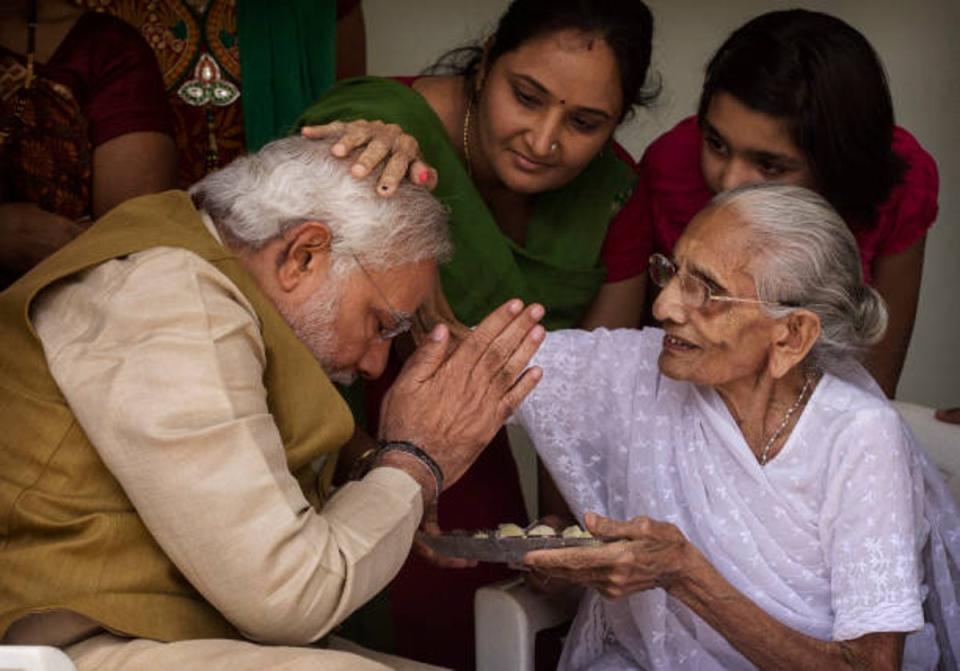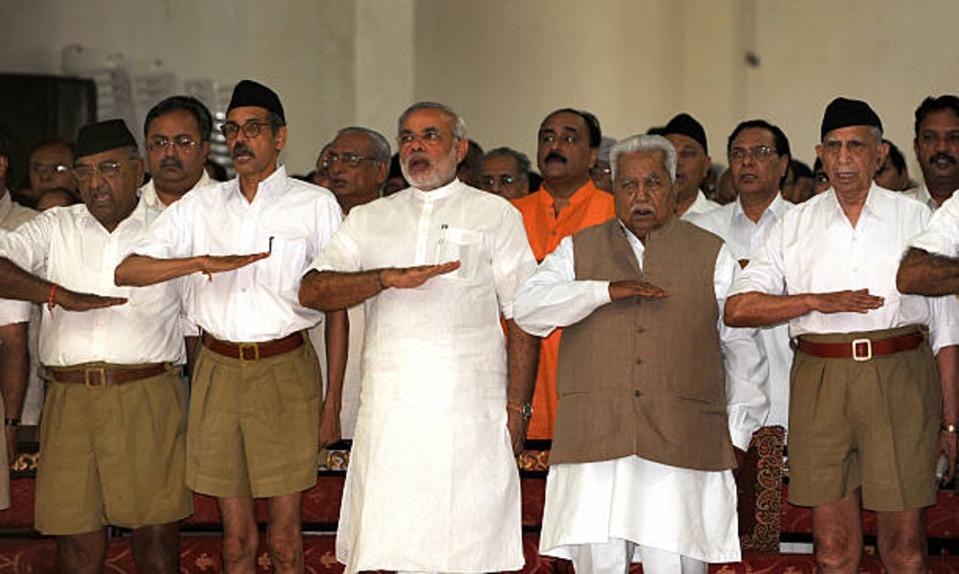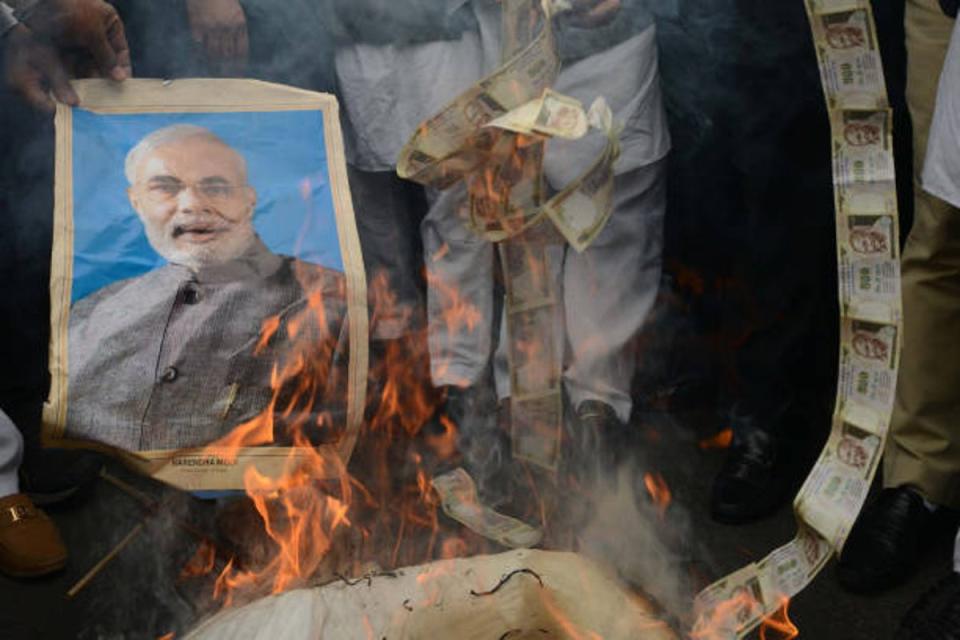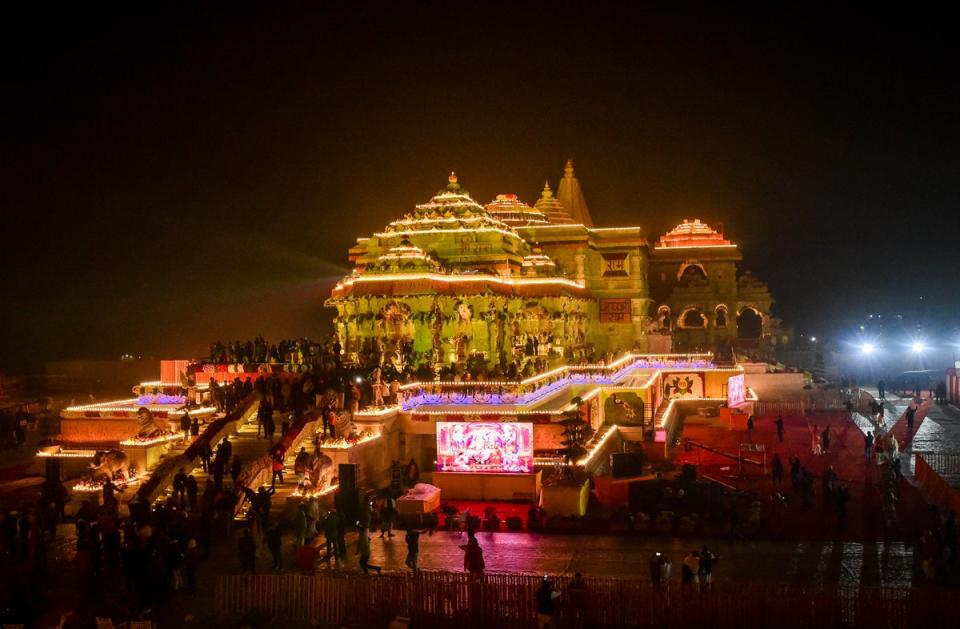Who is Narendra Modi? The Indian leader set to become prime minister for the third time

A decade in power and seeking a third consecutive term as prime minister, Narendra Modi has said he “has big plans for India and no one needs be spooked by them”.
Coming from a leader who was once persona non-grata in the US and the UK for his suspected role in sectarian violence, the assurance betrays a climate of fear and uncertainty that Mr Modi’s leadership has engendered for sections of the Indian society.
Opposition parties claim that India is sliding “towards dictatorship” as a result of Mr Modi’s “authoritarian tendencies” and the sectarian politics of his ruling Hindu nationalist BJP.
Follow our live coverage on 2024 India general elections.
Another term for the BJP government would prove “disastrous for India and its global reputation as the world’s largest democracy”, Dr Shubranshu Mishra, professor of politics and international relations at the University of Exeter told The Independent.
Mr Modi took power in 2014, and retained it in 2019, riding a cresting tide of revanchist Hindu nationalism. He is, for the most part, leaning on the same appeal to win a third term, which no prime minister has managed since the first one, Jawaharlal Nehru, in 1962.
Mr Modi, 73, has long portrayed himself as an outsider who came from a humble family background, unlike most of his predecessors and current rivals from political dynasties and sociocultural elite.
He was born into a family of grocers in Vadnagar town in the western state of Gujarat and claimed to have spent his teenage years manning a tea stall with his brother near a bus station.
At the age of 17, he left his wife Jashodaben to live an ascetic life. He does not have any children and the only glimpse of his closely guarded private life were his occasional meetings with his mother, Heeraben Modi, until her passing in 2022.

At an early age, Mr Modi was attracted to the ideology of Hindu nationalism and attended classes run by the Rashtriya Swayamsevak Sangh, the mothership of a network of Hindu right-wing groups, including the BJP. It’s where he is said to have honed his oratory as a pracharak, or propagandist.
He moved laterally from the Sangh to the BJP in 1987 just as the party was gaining broader support within the Hindu majority with its militant advocacy for the destruction of the medieval Babri mosque, which it claimed was built on the birthplace of the Hindu deity Ram.
The mosque was eventually torn down by a Hindu mob in 1992 and Mr Modi, now prime minister, inaugurated a grand Ram Temple on its site earlier this year.
The construction of the temple and especially the highly publicised and choreographed inauguration was seen by his critics as an attempt by Mr Modi to cement his appeal among his Hindu nationalist supporters.

After several years as a middlerung functionary in the BJP’s national setup, Mr Modi was sent to his home state of Gujarat, to steady the party’s government in the state. Against expectations, he led the BJP to victory in the December 2002 elections.
The victory, however, came on the back of a sectarian pogrom in which Mr Modi’s administration was accused of being complicit in. The pogrom, marked by massacres and gang rapes, left an estimated 2,000 Muslims dead.
Mr Modi has rejected the allegations and an investigation ordered by the Supreme Court found no evidence to support prosecuting him.
Still, the allegations made him a pariah in the West for years. He was denied entry to the US and the UK over concerns about human rights violations for years until it became clear he was going to be the prime minister.
At home, Mr Modi was now firmly installed as the face of Hindu nationalism in Gujarat, and beyond, and won back-to-back state elections in 2007 and 2012. He introduced a series of highly publicised infrastructure and industrial policies which he sold to the rest of the country as the “Gujarat model” of development.
The rhetorical melding of Hindu nationalism and material development would prove potent as Mr Modi set his sights on New Delhi.

Ahead of the 2014 national elections, the BJP installed Mr Modi as its prime ministerial candidate. BJP won the election handily, consigning the Congress, grappling with multiple corruption scandals, to its worst defeat ever.
After taking office, Mr Modi cast himself as the leader who would finally make India a developed country, announcing a slew of programmes to build and modernise roads, railways, power plants, airports, seaports, public transportation, and nearly 40 million concrete homes for the poor.
He also faced flak for decisions such as the overnight demonetisation of 500 and 1,000 rupee currency notes to supposedly crack down on black money and terrorism funding, and the handling of the border crisis with China.
At the same time, he was blamed for rising sectarian violence, especially against Muslims, and for the widening crackdown on dissent, free press and political opposition.
None of this could stop his triumphant march back to power in 2019.
In his second term, Mr Modi went about bringing the BJP’s pet projects to fruition. His government enacted a citizenship law that is considered discriminatory towards Muslims, revoked the autonomous status of Jammu and Kashmir’s autonomy, and constructed the Ram Temple in Ayodhya.

Mr Modi has rejected criticism of his policies and priorities claiming that his government works for the welfare of all citizens without discriminating.
His government, however, had to withdraw a slate of laws seeking to restructure India’s agriculture sector after thousands of farmers launched a year-long protest in the capital.
Still, Mr Modi enjoys a 75 per cent approval rating, according to Morning Consult, the highest among 25 world leaders tracked by the US data intelligence company.
“This will be the last opportunity for the people to save democracy in India. If Narendra Modi wins another election, there will be a dictatorship in the country,” Mallikarjun Kharge, president of the opposition party Congress, said in February. “The BJP will rule India like (Vladimir) Putin in Russia.”
“If rights are ignored, then dictatorship will be imminent.”
He was commenting after several prominent opposition leaders were put under investigation, raided and jailed by federal agencies controlled by Mr Modi’s government.
Prof Mishra echoed the concerns. “The upcoming Indian elections will place serious challenges on the country’s democratic and secular values,” he said. “The ruling party’s authoritarian hold on various institutions, including the election commission and Hindu majoritarianism that targets minority groups, are major concerns.”
“The outcome of the elections will determine whether India can preserve its democratic and secular values or continue its democratic decline under the Hindu nationalist prime minister Modi.”
Mr Modi, who has not given a press conference in his 10 years in power, sought to dispel such concerns ahead of the elections when he told the news agency ANI that “his big plans” were for the overall development of the country.
“My decisions are not to scare anyone or to diminish anyone,” he said when asked about his remark that his decade in power was just a trailer.


